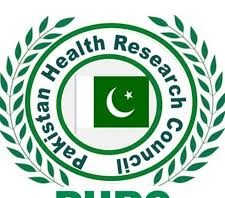
ISLAMABAD: Health is a fundamental right of people, the provision of which is the responsibility of the government. Global research over decades has shown that tobacco consumption, in any form, is hazardous for the health of individuals. It is a leading cause for various Non-Communicable Diseases (NCDs) among its users, including cancer of different organs in the body.
According to a report by Pakistan Health Research Council, tobacco causes a burden of Rs192 billion due to NCDs in addition to adversely affecting productivity. WHO stresses the need to reduce tobacco consumption through multiple strategies; of which, higher taxes on tobacco products proved to be most effective.
Speaking on this issue, Malik Imran, Country Representative of Campaign for Tobacco-Free Kids, said that in 2019, the Federal Cabinet in its meeting held on 28 May 2019 approved the proposed Health Levy Bill and motioned it further to be included in Finance Bill 2019-20. In this bill, the health levy on cigarettes at the rate of Rs10 per pack of 20 cigarettes and Rs1 on 250 ml of sugary drinks was proposed. He added that due to the delay in implementation, Pakistan has lost more than Rs50 billion and is continuously losing new stream of revenue which could have been utilized for various schemes of public welfare by the government, including Ehsaas Program or Universal Health coverage.
Similarly, Anis Bilal, Team Lead Human Development Foundation, added that the health levy was the only measure to mitigate health burden caused by non-essential products such as sugary drinks and tobacco products. Raising the prices makes these products inaccessible for children and also helps generate revenues. Health levy on sugary drinks and cigarettes would have generated Rs. 55 billion in revenue which could be used for healthcare infrastructure. He further stated that the FBR has failed to implement the Health Levy Bill which has cost the national exchequer a hefty amount. This new stream of revenues will help the government sustain its health program initiatives. The tobacco control activists anticipate that the government will take instant notice of the delay in implementation of the Health Levy Bill and ensure necessary steps to finally implement the bill, he remarked.
According to a report by Pakistan Health Research Council, tobacco causes a burden of Rs192 billion due to NCDs in addition to adversely affecting productivity. WHO stresses the need to reduce tobacco consumption through multiple strategies; of which, higher taxes on tobacco products proved to be most effective.

Speaking on this issue, Malik Imran, Country Representative of Campaign for Tobacco-Free Kids, said that in 2019, the Federal Cabinet in its meeting held on 28 May 2019 approved the proposed Health Levy Bill and motioned it further to be included in Finance Bill 2019-20. In this bill, the health levy on cigarettes at the rate of Rs10 per pack of 20 cigarettes and Rs1 on 250 ml of sugary drinks was proposed. He added that due to the delay in implementation, Pakistan has lost more than Rs50 billion and is continuously losing new stream of revenue which could have been utilized for various schemes of public welfare by the government, including Ehsaas Program or Universal Health coverage.
Similarly, Anis Bilal, Team Lead Human Development Foundation, added that the health levy was the only measure to mitigate health burden caused by non-essential products such as sugary drinks and tobacco products. Raising the prices makes these products inaccessible for children and also helps generate revenues. Health levy on sugary drinks and cigarettes would have generated Rs. 55 billion in revenue which could be used for healthcare infrastructure. He further stated that the FBR has failed to implement the Health Levy Bill which has cost the national exchequer a hefty amount. This new stream of revenues will help the government sustain its health program initiatives. The tobacco control activists anticipate that the government will take instant notice of the delay in implementation of the Health Levy Bill and ensure necessary steps to finally implement the bill, he remarked.
